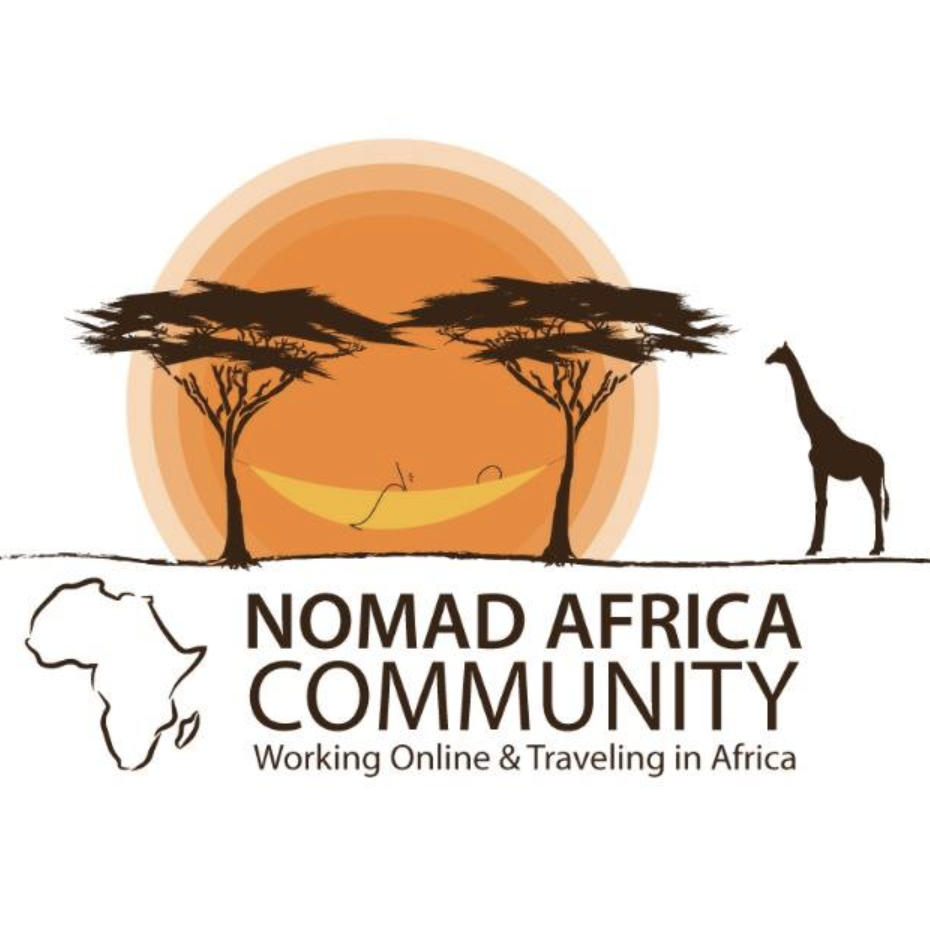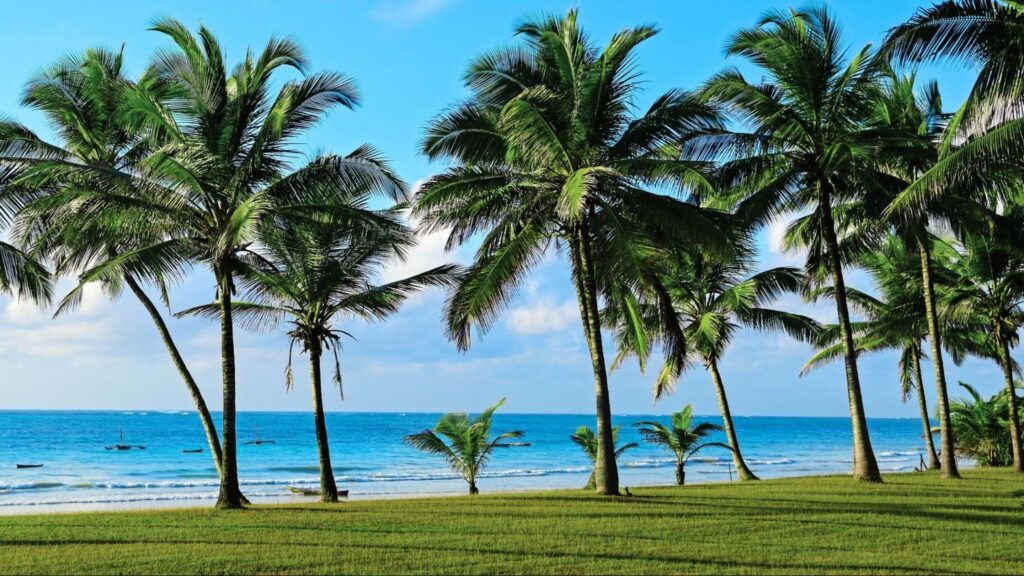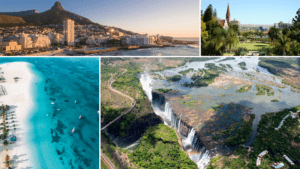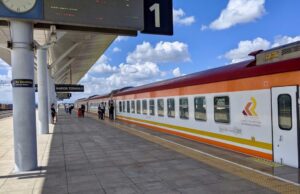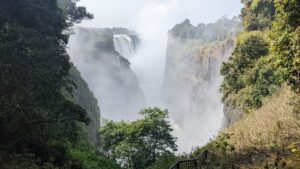Kenya has quickly become the top destination for digital nomads in Africa for its unique blend of white sand beaches, abundant national parks, and vibrant capital city – Nairobi.
Of course, it helps that Kenya has the best Wi-Fi in East Africa. You’ll never struggle to stay connected while you’re here.
But Kenya a few things about traveling here might surprise you – like the cost of living.
So, in this quick guide, we’ll break down everything you need to know about working remotely and traveling Kenya as a digital nomad.
The #1 community for nomads in Africa
Looking for the latest, most honest tips on remote working and traveling in Africa? Our free community of 2,500+ Africa fanatics has decades of experience on the continent. We’ve been traveling here since before Wi-Fi even existed.
From Cape Town or Casablanca, we’ve got everything you need for an unforgettable trip:
- Up-to-date tips on every African country you can think of.
- Honest, independent recommendations for colivings, coworkings, tour companies, and much more.
- Organise meetups and make friends on the road.
Quick Tips About Kenya
There is no Visa-On-Arrival in Kenya. You have to apply for a visa online in advance. Do so at least two weeks before your arrival date in case of delays.
Kenya is part of the East Africa Tourist Visa, a combined 90-day visa for Kenya, Rwanda, and Uganda.
Kenya has over 40 National Parks (including marine parks). The Masai Mara is the most famous for hosting the Big 5 animals and the annual wildebeest migration, but Amboseli is probably the best.
Nairobi National Park is the only national park located within a city. You can visit it from Nairobi for a half-day.
Get a SIM card from Safaricom to use M-Pesa mobile money – a convenient payment technology on your phone used by every business in Kenya.
Crime is an issue in Kenyan cities at night – especially Nairobi. Don’t walk alone, and use Uber whenever possible.
Kenya is huge, so if you’re traveling far, fly or use the train (where available). Driving is dangerous, long, and can be exhausting.
Laptop-friendly cafes
Nairobi has thousands of laptop-friendly cafes, with plug sockets, comfortable chairs, and reliable internet. You can’t walk into a Java, Artcaffe, or CJ’s and miss seeing someone typing away on their laptops.
On the coast, it’s hit and miss. Diani, Mombasa, Nyali have plenty of places to work. Kilifi and Watamu very few. Lamu basically has none (another reason we love it!).
Top Things to Do in Kenya
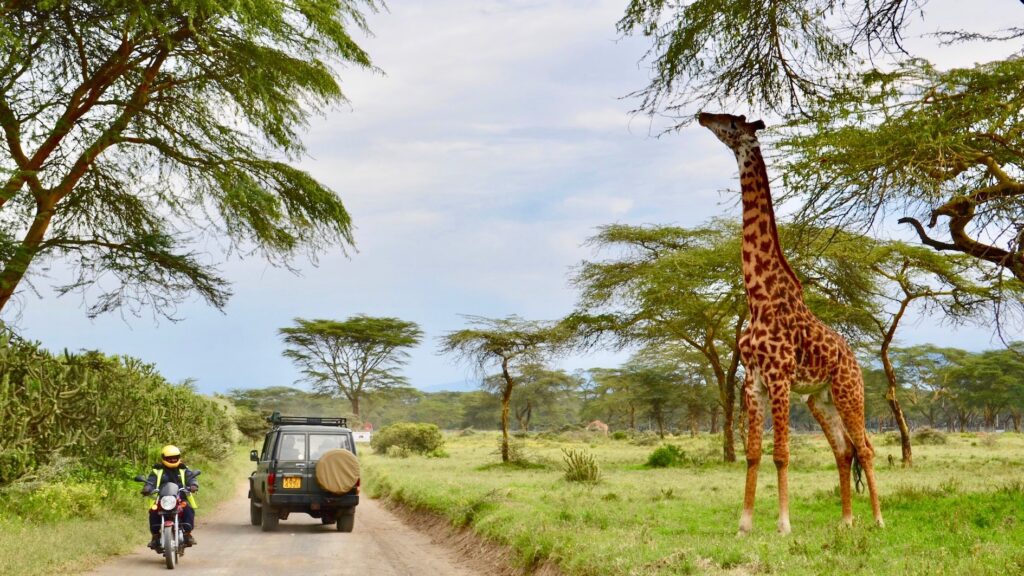
Safaris and National Parks
You probably know this already, but Kenya’s National Parks spoil you for choice of safari adventures. A trip to the Kenyan countryside will leave you in awe, from the many big game animals to the beautiful sunsets.
For more, check out this guide to the Great Wildebeest Migration in Kenya.
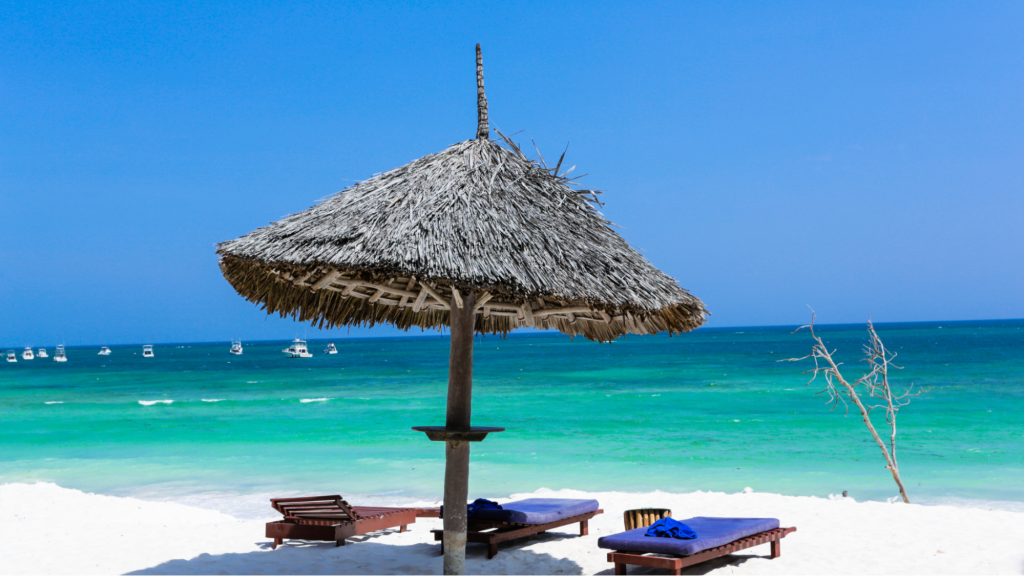

Beach Getaways
Kenya’s long coastline is home to countless spectacular white sandy beaches, charming coastal towns, and relaxing islands. They offer stunning beauty, tranquility, a unique mix of cultures, and plenty of fast Wi-Fi.
Diani offers the best mix of beach life and real-world convenience, with plenty to do, and an abundance of cafes to work from. Kilifi is a smaller, hipper, more creative, and stunningly beautiful beach town, popular with young Nairobians looking to let loose and party.
Lamu is the absolute best place to switch off – mostly because the internet there sucks, and the slow island pace of life is spoiled every time you open your laptop!
Hiking
Mt. Kenya is the second-highest peak in Africa, offering breathtaking landscapes for experienced hikers. However, there are also plenty of smaller, more accessible mountains and hiking trails in many national parks. Some, such as Ngong Hills and Karura Forest, can be accessed without leaving Nairobi.
Cost of Travel in Kenya
Kenya is not a budget travel destination. But that doesn’t mean you need to spend a lot to enjoy it.
The biggest expenses for people visiting the country are usually safaris. Skip these or join group tours, and your costs are drastically reduced.
But what are you supposed to do in Kenya, if you’re not on safari?
You can visit plenty of smaller, stunningly beautiful national parks dotted around the country, relax on the beach, and soak up the amazing atmosphere and hustle of this vibrant, exciting country.
Your other big expense will be accommodation. There are only a handful of backpacker hostels dotted throughout Kenya – and they’re often not suitable for digital nomads. But if you can afford to pay $60-70 per night, you can usually find some great deals on Booking.com (especially if you join its “Genius” loyalty program).
| Bed in a hostel dorm | $15 |
| Budget hotel room incl. breakfast | $25+ |
| Mid-range Hotel room | $50+ |
| Room in a nice, central Airbnb | $40+ |
| Budget 3-day safari | $450+ (pp) |
| Mid-range 3-day safari | $650+ (pp) |
| Entrance to museums in Nairobi | $5+ |
| One way flight Nairobi – the coast | $30-70 |
Cost of Living in Kenya
| Monthly groceries | $150-200 |
| Monthly Uber | ~$150 |
| Meal at street vendor/local restaurant | $4-7 |
| Meal at a Western restaurant | $8-15 |
| Monthly 4G+ data & calls package | $20+ |
| Monthly rent for a room in a shared apartment | $300+ |
| Monthly rent for a studio or 1 BR apartment | $800+ |
The following outline relates mostly to living expenses in Nairobi. This is for a few reasons:
- It’s the city with which we have the most experience
- It’s the most expensive city to live in Kenya
- It’s the most popular place to live, outside of Diani or Kilifi
If you plan to live somewhere in Kenya other than Nairobi, expect your costs to be roughly 30% less.
Living expenses in Kenya for an expat or digital nomad in Kenya can be compared to that of many European cities. The five main reasons for this are:
- Overpriced rent for ‘expat’ apartments in nice neighborhoods.
- Lack of good public transport means you’ll be taking lots of Ubers, Bolts, flights, and private car hires.
- Many groceries are imported with high import duty taxes.
- Entrance fees to national parks for non-citizens are very high ($30+ per person per day). So, if you plan on exploring Kenya on the weekends, it can get expensive.
- Nairobi doesn’t have much of a street food culture. Eating out usually means restaurants, averaging $8-15 per meal. On the coast and in smaller cities, it’s easier to find cheap, tasty local food.
But don’t worry, Kenyans complain just as much about the cost of living in Nairobi – so you’re not alone.
Based on our experience, we suggest budgeting $2,000-2,500 per month to cover all your living, working, and travel expenses in Kenya.
This cost of living in Nairobi guide will help you budget and compare it to your usual expenses. TLDR: the table below is a quick summary.
Widespread and safe card acceptance, and Kenya’s MPESA mobile money means you’ll rarely need physical cash while in Kenya.
This makes using money while traveling in Kenya safer and more convenient than in most countries around the world.
When you do need cash, don’t carry large amounts – due to the risk of pickpocketing or theft. When withdrawing cash from ATMs, they’re generally safe, with a security guard often close by. If in doubt, visit a bank or shopping mall.
